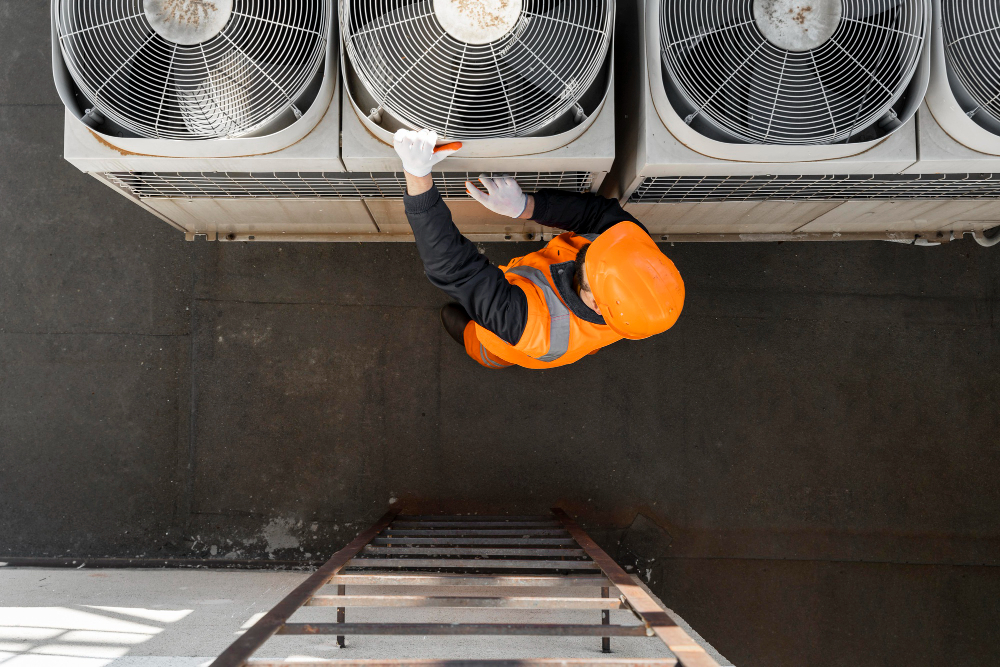Common HVAC Problems You Should Know About

Heating, Ventilation, and Air Conditioning (HVAC) systems are essential for keeping homes and businesses comfortable year-round, especially in states like Florida where humidity often hits record highs. But like any piece of equipment, HVAC units aren’t immune to wear and tear. Knowing the common problems you might encounter can save you money, time, and plenty of frustration in the long run.
If you’ve been wondering why your HVAC system isn’t cooling effectively or why your energy bills are climbing, this guide breaks down the most common HVAC issues, their warning signs, and what you can do about them.
Why Understanding HVAC Problems Matters
Your HVAC system is more than just a convenience; it plays a critical role in maintaining indoor air quality, regulating temperature, and ensuring energy efficiency. Ignoring problems in your system can not only compromise your comfort but also lead to costly repairs or replacements.
Luckily, many HVAC issues are preventable if caught early. Below, we’ll explore the most frequent problems homeowners and business owners encounter, and offer simple solutions to keep your system running smoothly.
Common HVAC Problems and How to Handle Them
1. Dirty Air Filters
One of the most common issues that impacts HVAC systems is dirty or clogged air filters. Over time, dust and debris accumulate in your filters, restricting airflow. This doesn't just make your system work harder; it also reduces indoor air quality.
Signs to Watch For:
- Uneven cooling or heating
- Increased energy bills
- More dust circulating in your home
Solution:
Replace air filters every 1 to 3 months, depending on the manufacturer’s recommendations and how often you use your system. If you have pets or allergies, you may need to replace them more frequently.
2. Refrigerant Leaks
Refrigerants are essential for cooling your home, and a leak can greatly reduce the efficiency of your air conditioning unit. Over time, this can lead to higher energy bills or even complete system failure.
Signs to Watch For:
- Warm air coming from vents while the AC is on
- Hissing or bubbling noise near the AC unit
- Higher-than-usual electricity usage
Solution:
Refrigerant issues should only be addressed by a licensed HVAC service provider or supplier. Routine maintenance can catch small leaks before they escalate.
3. Thermostat Issues
A malfunctioning thermostat may cause your system to overheat, stop cooling, or cycle on and off at the wrong times. Sometimes, the issue may simply be incorrect thermostat settings.
Signs to Watch For:
- HVAC system doesn’t turn on or off when expected
- Discrepancies between actual room temperature and thermostat setting
Solution:
Check thermostat batteries or settings first. If problems persist, it may be time for a replacement or calibration. Modern programmable or smart thermostats can be a game-changer for efficient energy use.
4. Clogged Drain Lines
Florida’s humid climate often leads to condensation, and your HVAC system removes water through drain lines. If these lines become clogged, water can back up, potentially causing water damage in your home.
Signs to Watch For:
- Water pooling near the indoor unit
- Musty odors around your HVAC system
Solution:
Flush the drain line regularly with a mixture of water and vinegar to prevent clogs. Severe blockages may need professional attention.
5. Electrical and Capacitor Failures
Without functioning electrical components, your HVAC system cannot operate. Worn-out capacitors, frayed wires, or circuit board issues can shut down the entire unit or cause intermittent failures.
Signs to Watch For:
- HVAC system struggles to turn on
- Unusual clicking or buzzing noises
- Frequent system short-cycling
Solution:
Damaged electrical components pose safety risks. If you suspect electrical problems, turn off the unit and contact a professional immediately.
6. Frozen Evaporator Coils
Freezing coils can occur when airflow is restricted, or refrigerant levels are too low. This problem can prevent your AC from working efficiently, leaving you with uneven cooling.
Signs to Watch For:
- Ice buildup on the indoor unit
- AC unit blowing warm air
Solution:
Turn off your system to allow the ice to melt, then check and replace any clogged filters. If the problem persists, call in an HVAC specialist to check refrigerant levels.
Tips to Prevent Future HVAC Problems
Proper care and preventive maintenance can greatly extend the life of your HVAC system. Here’s how to keep yours performing optimally:
- Schedule Annual Maintenance – Professional inspections can spot and fix potential issues before they worsen.
- Clean Outdoor Units – Clear away debris like leaves, dirt, or branches to maintain proper airflow.
- Upgrade Your System for Efficiency – If your HVAC system is older than 10–15 years, consider replacing it with a newer, energy-efficient model.
- Work with Trusted HVAC Suppliers – For the best replacement parts and equipment, ensure you're working with a reputable HVAC supplier in Florida.
HVAC Troubles? We’ve Got You Covered
Don’t wait for a small problem to turn into a major headache. Being informed about common HVAC issues can help protect your investment and ensure your home or business stays comfortable no matter how hot Florida gets.
If you're looking for a trusted HVAC supplier in Florida, we’re here to help. Contact Discount Air Supply today for top-quality HVAC parts, servicing, and expert advice.